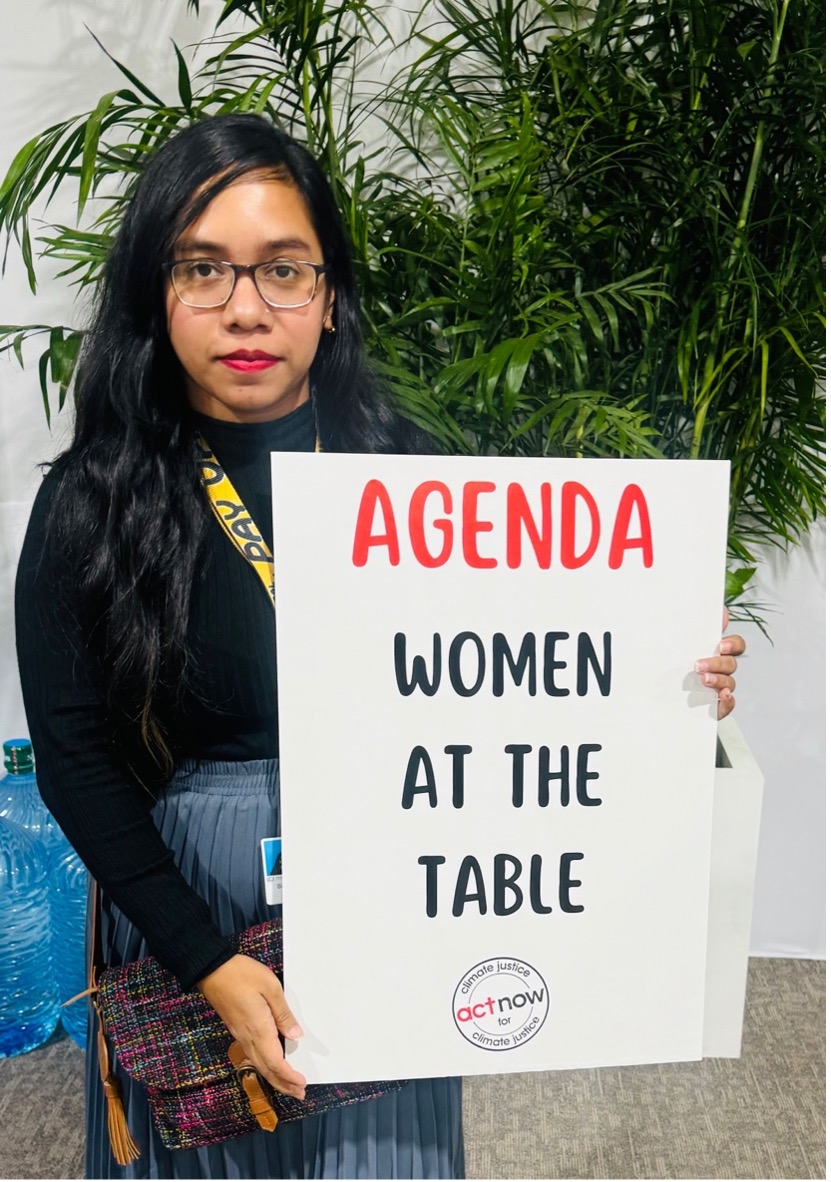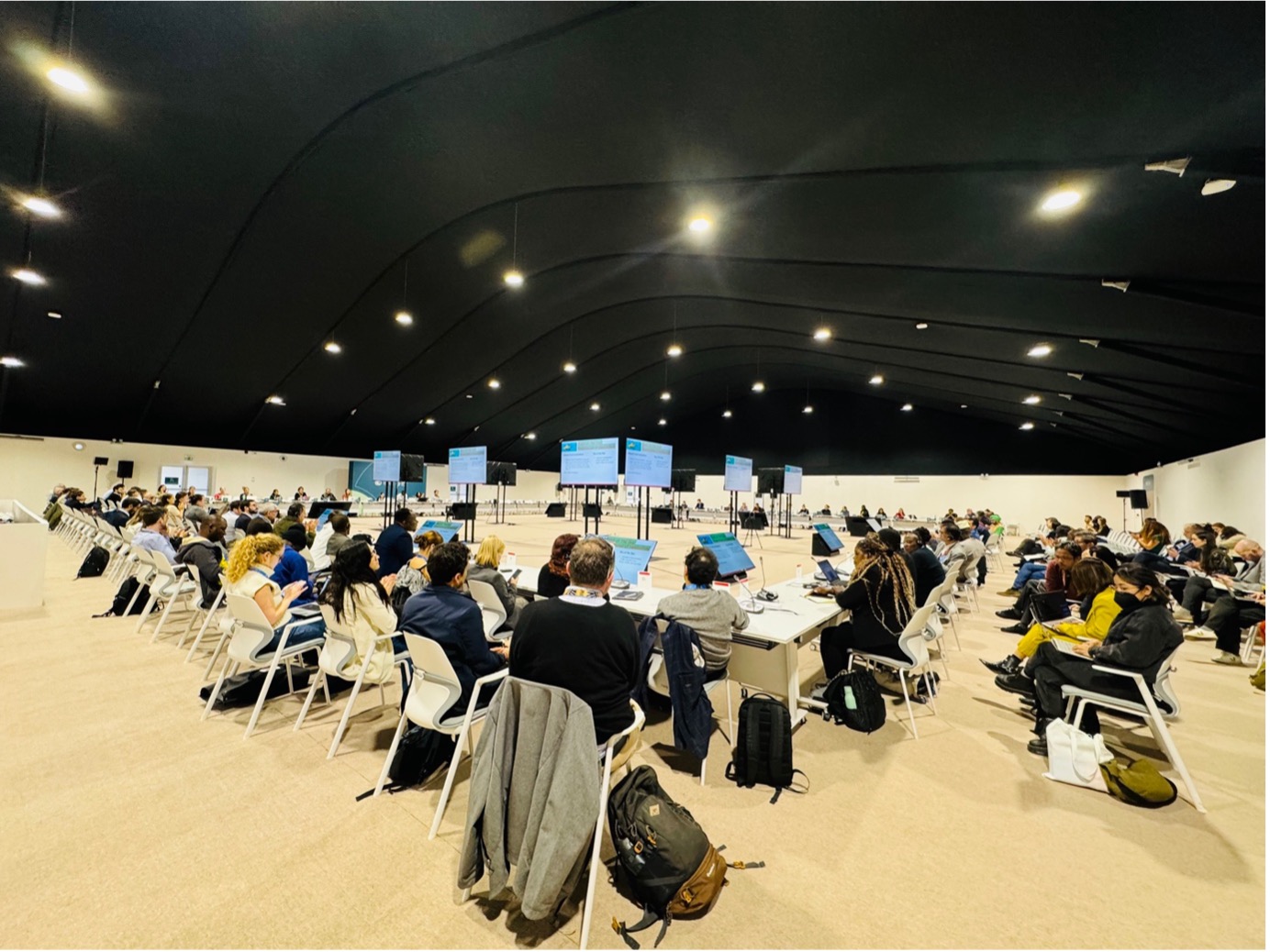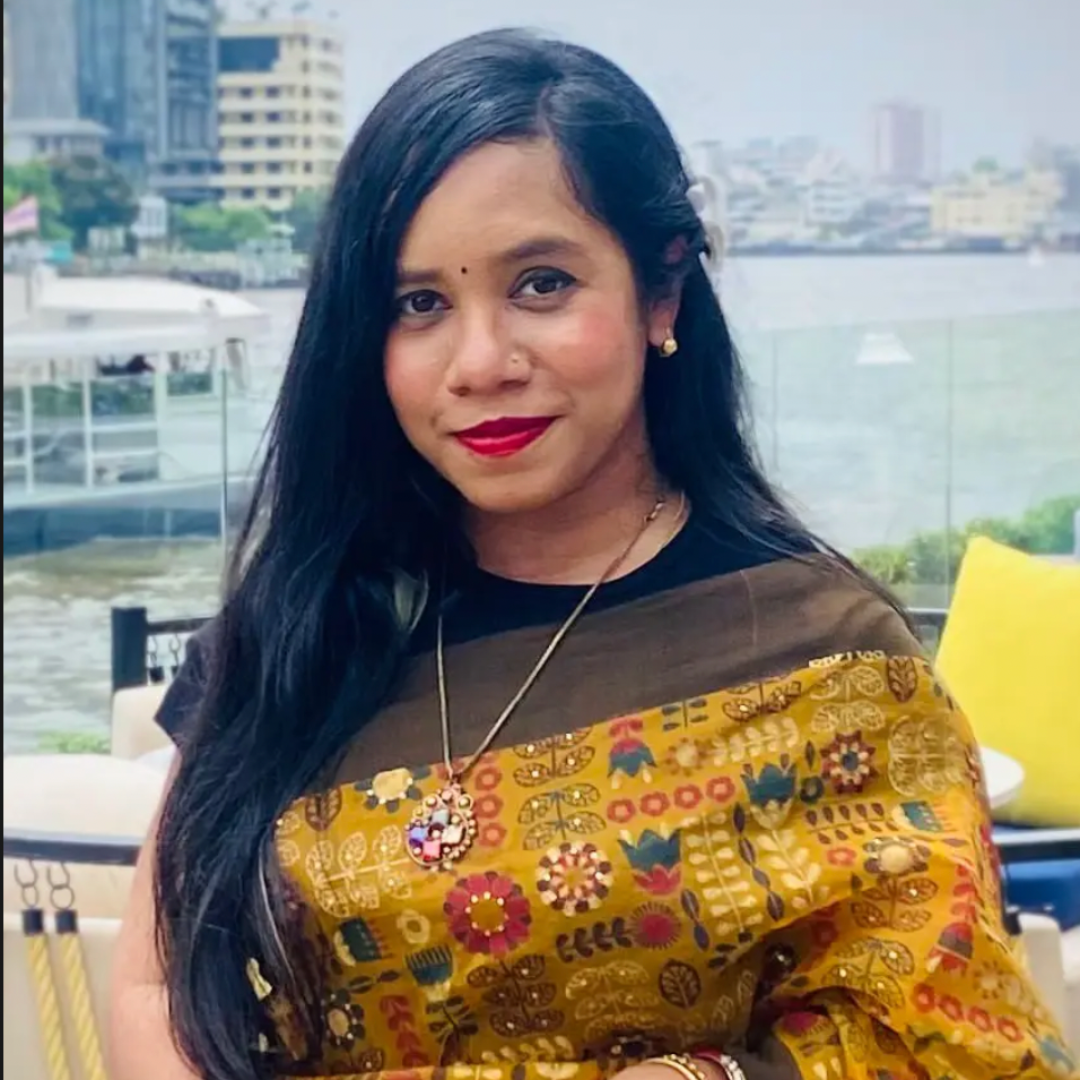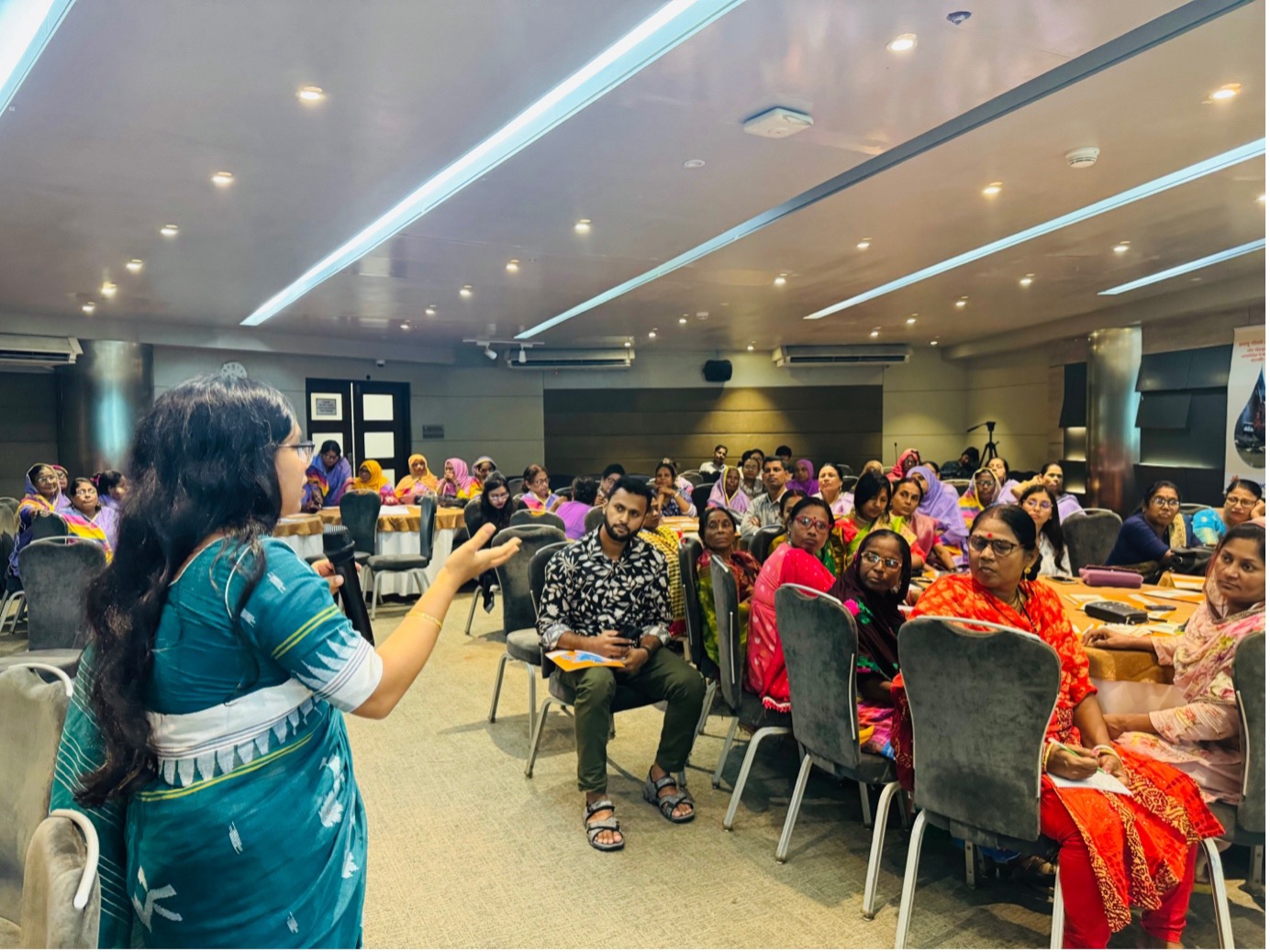Blog
Climate Change Negotiation and the 69th Commission on the Status of Women: An Observer Perspective
A reflective piece by Sumaiya Binte Selim Sudha, Programme Coordinator – Youth and Gender for the International Centre for Climate Change and Development, on the ‘Joint Initiative for Strategic Religious Action’ (JISRA) Project Mission to the 69th Commission on the Status of Women in New York City.

Sumaiya at the ‘In the Action Zone’ of COP29 to raise voices for supporting the WOMEN AT THE TABLE Agenda.
Working in the climate change sector for more than six years, I have frequently observed climate change negotiations, including through the Conference of the Parties (COP). I have seen how the discussions and action, or lack thereof, often leads to frustration. When I first learned about the Commission on the Status of Women (CSW), I had similar doubts to its effectiveness. However, as the saying goes, ‘the show must go on.’ Despite the challenges, it is always inspiring to go back to these events with my same enthusiasm to address the two major issues of climate and gender that are often ignored, but vital, in international discussions. For me, I have a strong passion for ensuring the nexus of climate change and gender is addressed. This passion has attracted me to study more about COP and CSW and their synergies.

Daily Meeting of CAN International at COP 29.
While the two weeks of CSW focuses exclusively on gender, the COP has only a specific segment analyzing the nexus of gender and climate, namely through the Lima Work Programme on Gender. As part of this, there is a dedicated day for participants to discuss gender and climate during COP. The Lima Work Programme on Gender was initiated in 2014 and was extended another ten years according to the decision of the United Nations Framework Convention on Climate Change (UNFCCC). The Programme plan targets five priority areas, including:
1) Capacity building, knowledge management and communication;
2) Gender balance, participation, and women’s leadership;
3) Coherence;
4) Gender-responsive implementation and means of implementation;
5) Monitoring and evaluation.
If we want to understand the synergies between gender and climate change, we need to understand the main work streams and decisions that were made in the latest sessions of these two major convenings.
Pre COP 29 Consultation in Dhaka, Bangladesh with Women from CSOs (Organized by Manusher Jonno Foundation -MJF and UN Women Bangladesh under Empower: Women for Climate Resilient Societies (PHASE-II) project).
During CSW69, there was a focus on how women are the most vulnerable to the impacts of climate change, but there remains a lack of research and awareness on the successes and challenges in implementing the Beijing Platform for Action through steps taken by Member States. The main message of CSW69 called for equality for all women, including young women. For COP29, it came with a call for a new finance goal. In both cases, countries are updating and reviewing their processes, whether it is for the implementation of the Beijing Declaration and Platform for Action for Women Issues or Nationally Determined Contributions (NDCs) and National Adaptation Plans (NAP) for climate change issues. Interestingly, many of the vulnerable countries including Maldives, Vanuatu, Malawi, and Bangladesh have mentioned the climate crisis as their primary challenge while implementing the Beijing Declaration and Platform for Action. Bangladesh is trying to progress its environmental sustainability and climate change adaptation and mitigation strategies with the core messages of the Beijing Platform.
CSW69 also focused on shared responsibility, while COP has long embraced the principle of, “common but differentiated responsibilities” outlined in Article 3 of the UNFCCC. However, there was less talk about gender finance at COP29, with only one mention in the agreed New Collective Goal on Finance (NCQG). Finalizing the Gender Action Plan will be prioritize in COP30, with targets for implementing a goal to carry through global adaptation efforts in a gender-responsive way. It is evident that if women are empowered economically and socially, it drives a community to be resilient to the effects of climate change. However, capacity building and effective messaging for women is needed at the local level.
Where both conventions have different shortcomings, they also offer opportunities for collective action. We need a collaborative approach for implementing the policies in an inclusive way that considers the local economy, society, and politics. I am hoping for a day when we will be going back home after long negotiations at either CSW or COP, with a satisfied and full heart. Observing both systems closely, I no longer feel frustrated. Indeed, I am motivated to return with a more focused plan of action to make these discussions stronger, more productive, and above all, just.

About Sumaiya Binte Selim Sudha
Sumaiya has been working for five years in the research and development sectors of Bangladesh. She has done her BSc and MSc in Environmental Sciences from Jahangirnagar University. She has experience working in climate change adaptation, urban livability, migration and environment-related projects and initiatives.
Follow the Peacemakers Network on social

